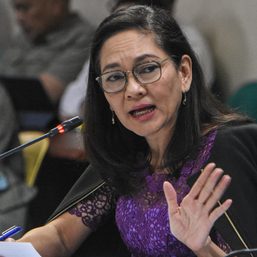SUMMARY
This is AI generated summarization, which may have errors. For context, always refer to the full article.

PLDT said on Wednesday, September 16, that it seeks clarifications and amendments that would allow it to comply with Republic Act 9775 or the Anti-Child Pornography Act of 2009 while respecting the privacy of users.
In an email to Rappler, PLDT said it and the Philippine Chamber of Telecommunication Operators (PCTO) “want the conflicting provisions (Section 9) of RA 9775 be amended to be compliant with the Philippine Constitution and other existing laws (i.e. RA 10173 or theData Privacy Act of 2012)” through a position paper submitted to the Department of Justice.
The paper says that Section 9 of the anti-child pornography act obliges internet services providers such as PLDT to notify authorities within 7 days from discovering any form of child pornography being committed using its service. It requires the installation of “available technology, program or software to ensure that access to or transmittal of any form of child pornography will be blocked or filtered.”
However, the law appears to be contradictory as the same section says that “Nothing in this section may be construed to require an ISP to engage in the monitoring of any user, subscriber or customer, or the content of any communication of any such person: Provided, That no ISP shall be held civilly liable for damages on account of any notice given in good faith in compliance with this section.”
RA 10175, or the Cybercrime Law, also does not allow ISPs to actively monitor content as this violates an individual’s right to privacy.
PLDT also argued that parts of RA 9775 may also be unconstitutional as it requires them to block and filter offending content without a judicial warrant.
“If the Secretary of Justice who is supposed to be the bastion of legal knowledge and despite prima facie finding, cannot without a judicial warrant, order the blocking of the offending computer data, all the more private entities such as ICT SPs (internet communication technology service providers) including the PLDT Group.”
The company explained, “This reeks all the elements of censorship or prior restraint in violation of and at the expense of the constitutionally guaranteed right to freedom of speech and of expression.” It also seeks clarifications on the terms “blocking” and “filtering.”
Warrantless data search unconstitutional
PLDT cited other instances that show why RA 9775 may need to be amended.
It cited the 2014 case of Disini v. Secretary of Justice, in which the Supreme Court declared as unconstitutional Section 19 of the Cybercrime Prevention Act of 2012 – the provision on restricting or blocking access to computer data. PLDT said this was because it gave the the Department of Justice “the virtual power to search and seize private data without the requisite judicial warrant.”
In the Disini case, the Supreme Court also declared Section 12 of the Cybercrime Prevention Act – as it refers to the real time collection of traffic data – as unconstitutional. This was because “the power is virtually limitless, enabling law enforcement authorities to engage in ‘fishing expedition’ choosing whatever specified communication they want.”
PLDT added traffic data, such as data like uploaded content, is considered property and should thus be protected from unreasonable searches and seizures under the bill of rights.
The telco group, in the interest of its members and end users, seeks to have these tricky portions clarified.
Blocking sites, seeking guidance
Pending the enactment of house bills that would amend RA 9775, PLDT also said it has, over the years, blocked 2,909 websites linked to child pornography.
The sites were blocked based on memos sent by the National Telecommunications Commission or reported to them by various sources working on anti-child pornography campaigns.
PLDT Group is also working on a subscription to Internet Watch Foundation (IWF), the National Center for Missing and Exploited Children (NCMEC), and a possible partnership with the Interpol which would allow it to acquire more lists of domains that have been linked to child pornography for further filtering and blocking.
Alongside this, the company also sought guidance from the United Nations Children’s Fund (UNICEF) on protecting children. To that end it has integrated child-safeguarding policies into its business, covering processes and programs for its workplace, as well as in its marketing activities, product and service offerings, and trade community engagements.
In 2017, the Unicef reported the Philippines as the top global source of child pornography.
Meanwhile, PLDT and wireless unit Smart Communications also provided connectivity and technical assistance to the Philippine National Police’s (PNP) text hotline 7444-64 for the reporting of online sexual abuse and exploitation of children. – Rappler.com
Add a comment
How does this make you feel?





There are no comments yet. Add your comment to start the conversation.